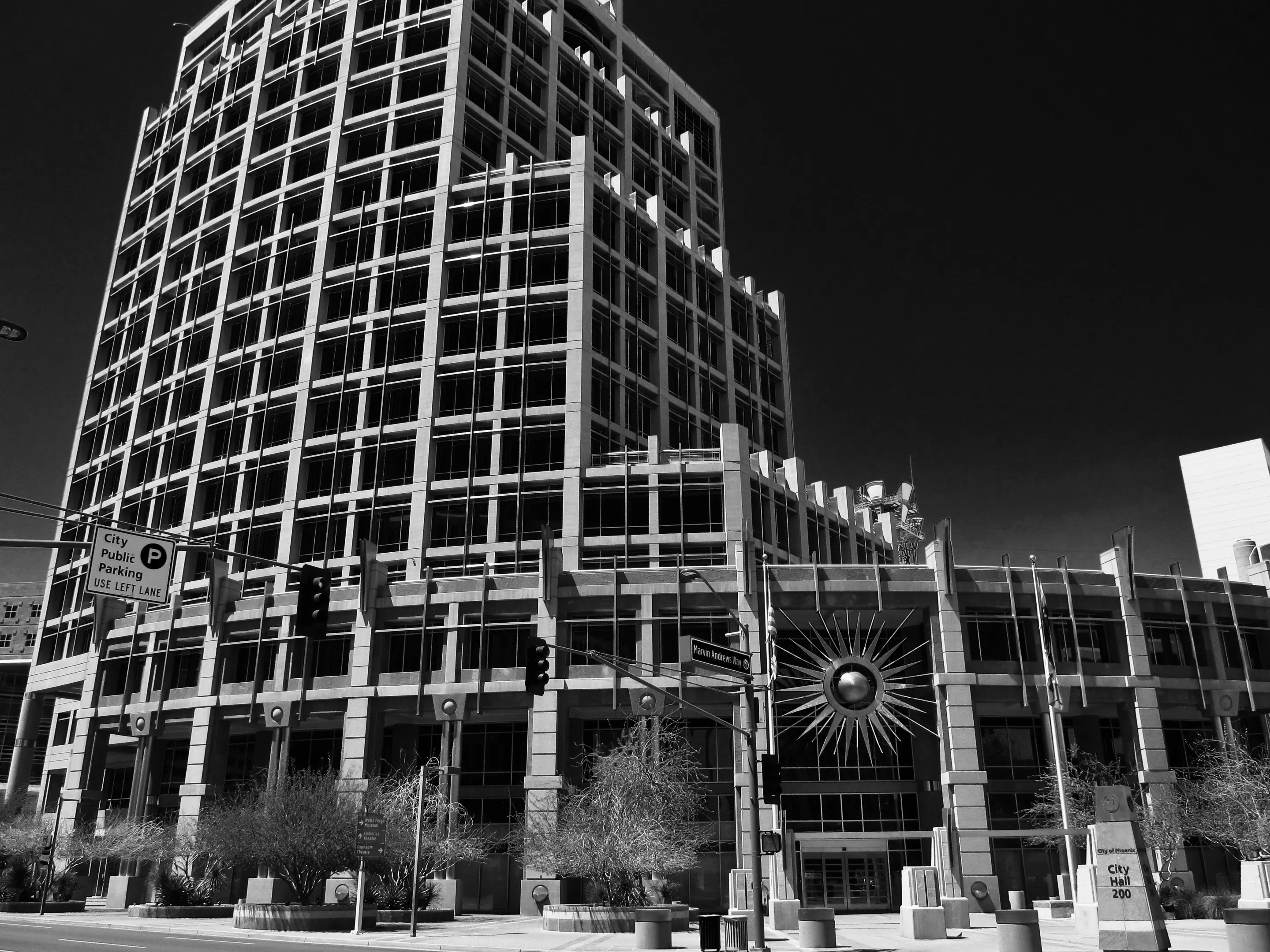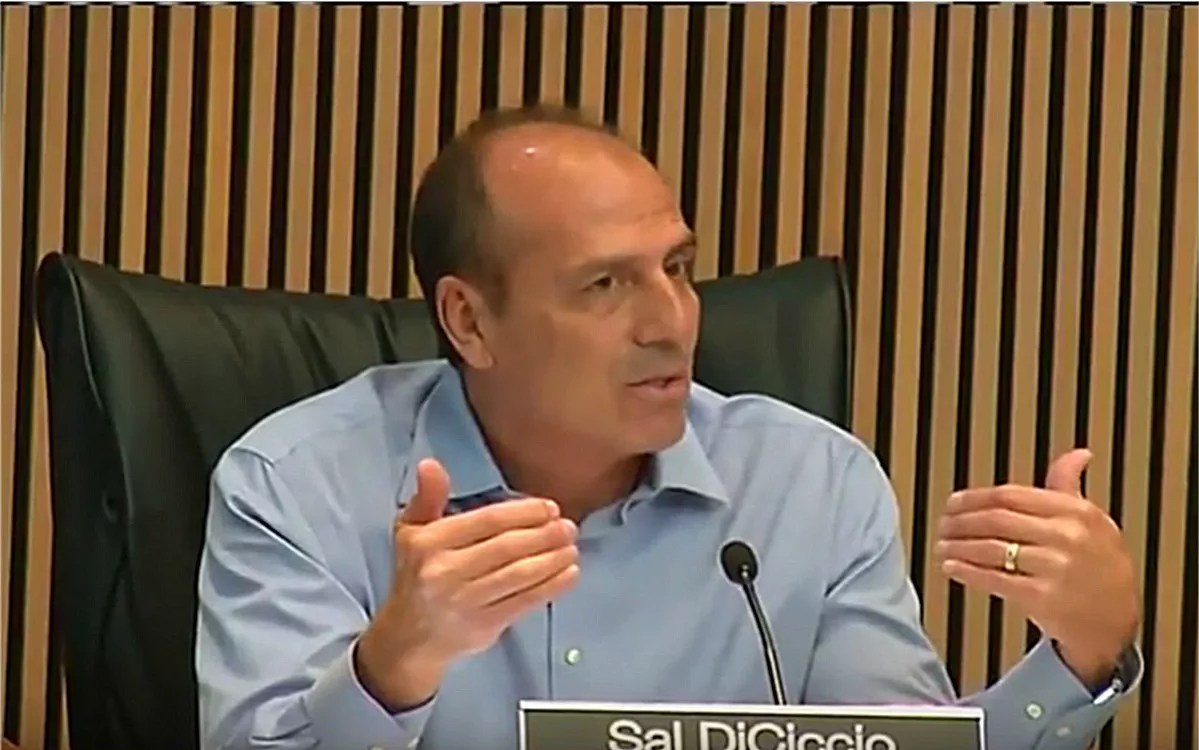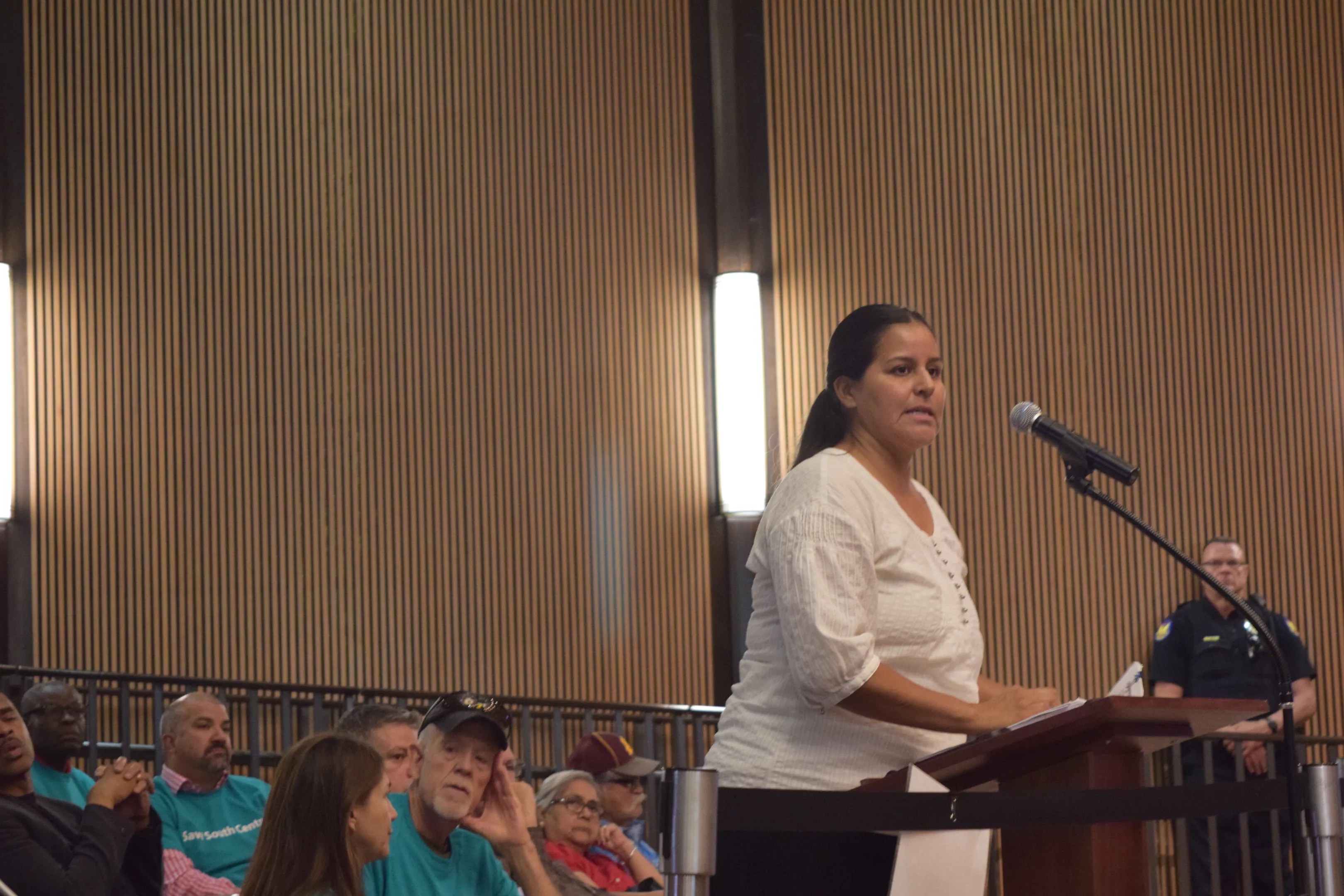
Jasperdo/flickr; New Times photo illustration

Audio By Carbonatix
Phoenix Mayor Thelda Williams looked shell-shocked.
City Council already had been paralyzed by a fight over a major extension of the light rail – a priority of former mayor Greg Stanton. Now, the Council had just deadlocked on what was supposed to be a procedural approval of the 2018-19 budget, 11 days before the new spending plan was supposed to take effect.
At their chairs below the dais, city officials sat motionless, staring at their notes. Williams broke the silence with a frank admission.
“I have no idea what we do now,” she said.
Progress on major Council items has ground to a halt as the interim mayor has struggled to keep the budget and a transit master plan on track. Here are just a few things that have happened at the Council since Stanton resigned to run for Congress on May 29:
Will you step up to support New Times this year?
We’re aiming to raise $30,000 by December 31, so we can continue covering what matters most to you. If New Times matters to you, please take action and contribute today, so when news happens, our reporters can be there.
• The Council failed to approve a final operating budget last Wednesday, days before the new budgetary year is set to take effect on July 1.
• A long-planned extension of the light rail to south Phoenix has been knocked off course by protests from business owners. In a move that has alarmed public transit advocates, the City Council kicked the design of the project back to Valley Metro to see if the transit authority can maintain four lanes of traffic on Central Avenue. Hundreds of millions of federal dollars hinge on the success of the redesign.
• Councilman Sal DiCiccio, a conservative firebrand, has seized on the chaos to call for the removal of City Manager Ed Zuercher.
The transition to a City Council led by interim Mayor Thelda Williams has been anything but smooth, and there are still more shake-ups to come.
Council members Kate Gallego and Daniel Valenzuela must resign by August 8 in order to pursue their own mayoral races, which means that the Council will appoint unknown replacements from their districts to serve in the interim.
But in the near term, the city has to pass a budget.
During last Wednesday’s City Council meeting, Councilman Michael Nowakowski surprised nearly everyone by voting “no” on the budget because of his concerns about the light-rail extension, which encompasses part of his district. Nowakowski said he still had outstanding questions for city staff: “I’m not just gonna rubber-stamp this budget.”
That meant Nowakowski joined the two conservatives on the Council who voted down the budget – Vice Mayor Jim Waring and DiCiccio – as well as Councilwoman Laura Pastor. Without Stanton there to break a 4-4 tie, the Council deadlocked and the budget failed.
“I believe that’s four to four? So it fails,” Williams said, as if in disbelief. She remarked that to her knowledge, this was the first time the Council has ever failed to pass a budget in a final vote.
In a follow-up statement after the vote, Williams sounded less defeated. “Passing a budget is the most basic responsibility of the council, and we must meet the obligation we have to those we serve,” she said, thanking the city manager and budget director, who have come under withering criticism from DiCiccio.
“Phoenix residents, businesses, and employees should be assured that the city will continue to operate and provide the excellent services they have come to expect,” Williams added.
Because the Council moved to reconsider the budget at this Wednesday’s meeting, members will get another chance to pass the 2018-19 operating fund.
So what’s the worst-case scenario if the budget fails for a second time before the start of the new budgetary year? The city is not saying. A spokesperson declined to comment, saying that staff are providing the information that council members need before they vote.
“We do not want to speculate ahead of next week’s meeting,” Matthew Heil wrote in an email on Friday. “I would refer you to the Mayor’s statement that residents should rest assured that the city will continue to operate.”

Phoenix City Councilman Sal DiCiccio is an outspoken opponent of the light rail.
City of Phoenix
The perpetual bomb-thrower DiCiccio was happy to see the Council deadlock and the budget fail. “Mayor, it needed to fail,” DiCiccio said at the meeting, as Williams admonished cheering audience members. “It’s completely pure mismanagement at the city of Phoenix … it’s the only way you send a message.”
In an interview, DiCiccio’s chief of staff Sam Stone said that he is nearly certain council members will reach an agreement in time; if they can’t, they could potentially adopt some type of stopgap spending measure. Even so, Stone criticized the city manager for not anticipating Nowakowski’s “no” vote, and also referred to the budget failure as more fallout from Stanton’s departure.
“If you had Stanton here, who was always a reliable vote for whatever the city staff’s agenda was, it would’ve passed regardless,” Stone told Phoenix New Times.
DiCiccio is also seeking the ouster of the city manager. During one of last week’s meetings, DiCiccio insulted Zuercher, publicly calling him a liar. And on Friday, the councilman released a laundry list of grievances having to do with Zuercher’s management of the city, ranging from streets to the budget deficit to water infrastructure. DiCiccio said that the city “is facing a crisis of leadership.”
“When you combine inept management with a transitioning council, you have a recipe for disaster,” DiCiccio said in the statement.
When asked if DiCiccio’s recent actions amount to a power play in Stanton’s absence, Stone dismissed the criticism, calling it “ridiculous.”
“I think it gives us credit for being far trickier and more devious than we ever bothered being,” he said.

Celia Contreras, owner of Tony’s Window Tinting on Central Avenue, is leading an anti-light rail coalition of business owners in the grassroots group 4 Lanes or No Train.
Joseph Flaherty
Although the possibility of Phoenix having no operating funds is troubling, in reality, the budget debate is a side effect of the battle over light rail in south Phoenix.
Led by a grassroots group called 4 Lanes or No Train, residents of south Phoenix began sounding the alarm about the disruptions that they say the six-mile South Central light rail extension will bring to their neighborhood. South Phoenix has long been neglected by the city, and its diverse neighborhoods include historic African-American and Latino communities.
Under the transit authority’s original plan, which the Council approved in 2014, the light rail extension was going to reduce traffic on Central Avenue to one lane in each direction. Business owners began meeting to discuss the impending light rail construction, and eventually took to City Council meetings.
They found an eager audience in light rail foes like DiCiccio, Waring, and Stone. The demonstrators also won over Nowakowski and Pastor, who lobbied to return the light rail to the Council’s agenda at its June 20 meeting.
For much of that meeting, the light rail extension appeared to be on life support, with Waring arguing that they should subject the extension to another citywide vote – even though Phoenix residents already approved it during an August 2015 referendum on transit spending.
Valley Metro chief Scott Smith said that putting the South Central light rail up for a vote again would be a death knell.
As an alternative, Nowakowski proposed that Valley Metro return to the drawing board to assess whether four lanes could work on South Central Avenue. A majority of Council members agreed in a 6-2 vote, then they instructed city staff to find an “independent facilitator” to lead public meetings on the light rail to ensure community members have their say in a final decision.
Deputy City Manager Mario Paniagua told New Times in an email that the city is still working to identify a facilitator.
Meanwhile, nearly $600 million in federal funds for the project is on the line. Valley Metro says that the Council’s decision will not jeopardize the project. Transit advocates aren’t so sure.
After the Council’s decision, Sean Sweat, the president of the Urban Phoenix Project, called the “four lanes” argument a backdoor approach to kill light rail.
“If you look at how little fortitude there was on the Council last night to hold the line, and how the Council is going to change when Valenzuela and Gallego’s replacements are appointed in August, there is a very real risk here,” Sweat wrote in an email.
In an interview, Valley Metro CEO Scott Smith said that light rail is not dead. The South Central extension is proceeding as planned, he said, and Valley Metro will be able to meet the Federal Transit Administration’s deadlines for grant funding while tweaking the design.
Smith explained that maintaining four lanes will have trade-offs, including limited sidewalks, tight turns, or the loss of bike lanes. The upcoming public discussion will help clarify the pros and cons “based on the facts of a four-lane design – not on political hype and emotions, but just on facts,” he said.
He also gave a mea culpa, admitting that the agency’s outreach obviously could have been better. Outraged South Phoenix residents have said they were never informed that the light rail extension would create two-lane traffic on Central.
“There’s no doubt that we could’ve done a better job on this as an organization,” Smith said. Vowing to improve during the upcoming public discussion, he admitted that Valley Metro’s previous approach may have been too bureaucratic.
“You’re not always going to give them the answer that they want,” he said. “But you should never disappoint them in the way that they don’t believe you cared about their input.”
The battle over light rail at the Council strikes at Phoenix’s public transit master plan – an issue that was one of of Stanton’s biggest priorities. He even stumped for the T2050 transportation funding referendum during his re-election campaign, earning him kudos from Governing Magazine last year.
In his resignation letter, Stanton recapped some of his accomplishments. “I have confidence that with the ongoing leadership of the Phoenix City Council and City Manager Ed Zuercher, Phoenix will continue on its positive path,” Stanton said in the letter.
He also said that Phoenix is on a strong, positive trajectory.
And while the recent turbulence might subside after voters elect a new mayor in November, for now, the city’s trajectory is unclear.